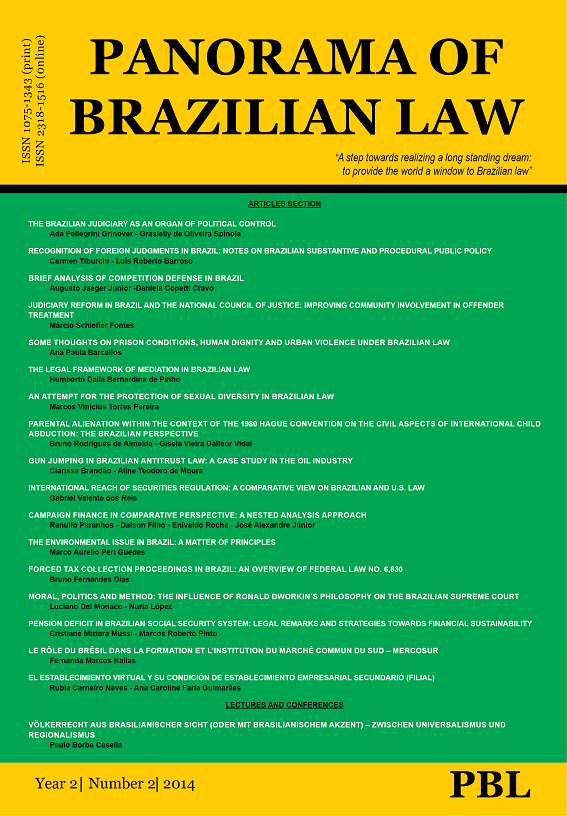PARENTAL ALIENATION WITHIN THE CONTEXT OF THE 1980 HAGUE CONVENTION ON THE CIVIL ASPECTS OF INTERNATIONAL CHILD ABDUCTION: THE BRAZILIAN PERSPECTIVE
DOI:
https://doi.org/10.17768/pbl.y2.n2.p167-192Abstract
The number of cases of relocation of children and adolescents to Brazil has increased significantly in the last years. One must consider that abducting or wrongfully retaining children from the places of their habitual residence prevents them from enjoying fundamental rights such as those to historical, social and cultural identities and even the right enjoy full family life with both sides of their families. This article shows that unilateral relocation of children to Brazil (as well their wrongful retention in Brazilian territory) in violation of the 1980 Hague Convention on the Civil Aspects of International Child Abduction, is actually one form of Parental Alienation practiced in cross border circumstances, pursuant to Federal Law nº 12.318, from August 26, 2010 (Brazilian Parental Alienation Act). On that sense, Brazilian administrative and judicial authorities must not only engender public policies and strategies to enhance acknowledgement about rules of the Convention among Brazilian communities living abroad, they must also encourage extrajudicial agreements between interested parties to increase the rates of voluntary return of abducted or retained children. In cases brought to courts, since Parental Alienation is a form of emotional abuse of the child, magistrates must count on the opinion of interdisciplinary advisors before considering opinion of the abducted children in the ruling of the return order. In sum, the search for international cooperation with other Contracting States of the 1980 Hague Convention and the respect of the best interest of the child must be in permanent harmony.
Downloads
Published
How to Cite
Issue
Section
License
Panorama of Brazilian Law employs Open Journal Access policies.
Authors are fully and exclusively responsible for their submissions.
Authors who publish with this journal agree to the following terms:
- Authors retain copyright and grant the journal right of first publication with the work simultaneously licensed under a Creative Commons Attribution-NonCommercial-ShareAlike 4.0 International License that allows others to share the work on a non-comercial basis with an acknowledgement of the work's authorship and initial publication in this journal and indicating if any changes were made. If you remix, transform, or build upon the material, you must distribute your contributions under the same license as the original.
- Authors are able to enter into separate, additional contractual arrangements for the non-exclusive distribution of the journal's published version of the work (e.g., post it to an institutional repository or publish it in a book), with an acknowledgement of its initial publication in this journal.

